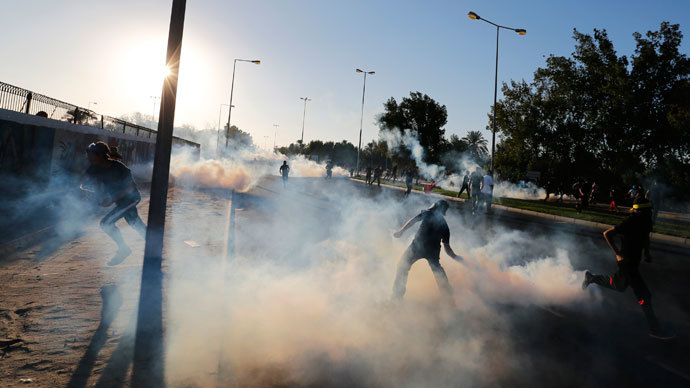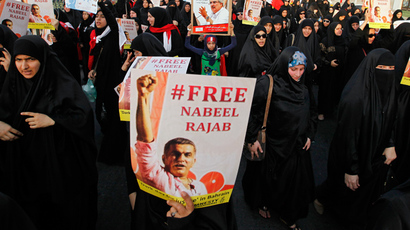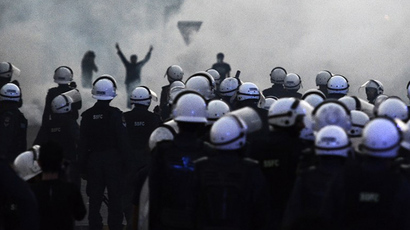South Korea ‘suspends’ sales of tear gas to Bahrain over misuse fears

The South Korean authorities have reportedly told two of its national companies to halt tear gas exports to Bahrain due to concerns over the misuse of the substance by the Gulf state and pressure from human rights groups.
The private companies were instructed to refrain from shipping
tear gas to the island kingdom by the government’s Defense
Acquisition Program Administration.
Both firms sold lachrymator to Bahrain in 2011 and 2012, unnamed
officials told AP.
Export of tear gas is impossible without governmental approval in
South Korea because a key ingredient of the crowd control agent
is listed as a strategic material in the country.
The officials explained that the decision was made after media
reports that misuse of tear gas in Bahrain caused deaths among
dozens of protestors and calls from the human rights
organizations.
An online campaign by the Gulf State’s opposition human rights
group, Bahrain Watch, saw people sending over 400,000 emails to
Korean defense officials, demanding to stop lachrymator supplies.
Great news tht #SouthKorea cancelled #teargas shipment.. now what abt those other countries selling weapons to #Bahrain? #US#UK#Cyprus etc
— Maryam Alkhawaja (@MARYAMALKHAWAJA) January 7, 2014
Amnesty International has praised South Korea for the decision,
which will “help prevent further human rights violations in
Bahrain.”
However, Bahrain's interior ministry said that it had not been
formally notified about any bans on the export of South Korean
tear gas.
“Tear gas is used by Bahrain’s police force only as a
necessary and proportionate measure and in public order and riot
control situations,” the ministry said in a statement.
Bahrain, a Sunni monarchy which hosts the American’s Navy's Fifth
Fleet, is going through a period of unrest since the country’s
Shiite majority began demanding more rights from its Sunni Muslim
rulers.
At least 89 people have been killed in the Sunni-ruled kingdom
since protests began in March 2011 when Shiite-led unrest led to
a violent crackdown.
Dozens of protesters across the country have been put in jail
since then as rallying in the capital became subject to a ban.
In April, rallies intensified during the Formula 1 Grand Prix.
Protestors said the event overshadowed the many alleged human
rights abuses in Bahrain. Multiple reports of physical and
psychological torture emerged during the race, according to the
Human Rights Watch.














